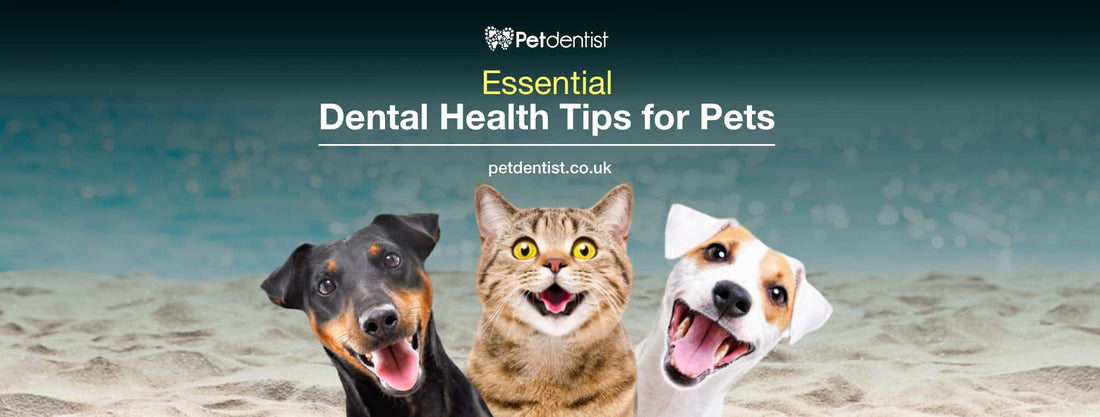
Essential Dental Health Tips for Pets
Share
Discover how to keep your pet’s smile bright and healthy with expert dental care tips.
Understanding the Importance of Dental Health in Pets
Your pets can suffer from dental issues such as plaque buildup, gum disease, and tooth decay if their teeth are not properly cared for. Poor dental health can lead to more serious health problems, including infections that can spread to other parts of the body.
Regular dental care helps prevent these issues, ensuring your pet stays healthy and happy. It's essential to be proactive about your pet's dental hygiene to avoid costly and painful treatments down the road.
Daily Dental Care Routines for Your Pet
Incorporating a daily dental care routine can significantly impact your pet's dental health. Start by brushing your pet's teeth regularly using a pet-specific toothbrush and toothpaste. Human toothpaste can be harmful to pets, so always use products designed for them.
Read Article: Pet Toothpaste vs. Human Toothpaste
In addition to brushing, consider dental treats and chews that help reduce plaque and tartar buildup. These products can be a fun and effective way to maintain your pet's dental hygiene between brushings.
Choosing the Right Dental Products for Your Pet
Selecting the appropriate dental products is key to effective pet dental care. Look for toothbrushes with soft bristles and ergonomic handles that are comfortable for you to use.
When it comes to toothpaste, choose flavours that appeal to your pet, such as poultry or beef. This can make the brushing process more enjoyable for them. Additionally, dental rinses and water additives can be used to further support your pet's dental health.
Professional Dental Treatments for Pets
Despite your best efforts at home, professional dental treatments are sometimes necessary to maintain optimal dental health in pets. Regular veterinary check-ups should include an examination of your pet's teeth and gums. Your vet can provide professional cleanings to remove tartar and plaque that are difficult to address at home.
In some cases, your pet may require more advanced treatments such as extractions or periodontal therapy. These procedures should always be performed by a qualified veterinarian to ensure the safety and well-being of your pet.
Recognizing Dental Health Issues in Pets
Being able to recognize the signs of dental health issues in your pet is crucial for early intervention. Symptoms of dental problems can include bad breath, difficulty eating, pawing at the mouth, and visible tartar on the teeth. Swollen or bleeding gums are also indicators of potential dental issues.
If you notice any of these signs, it's important to consult with your veterinarian as soon as possible. Early detection and treatment can prevent more serious health complications and ensure your pet remains comfortable and pain-free.

